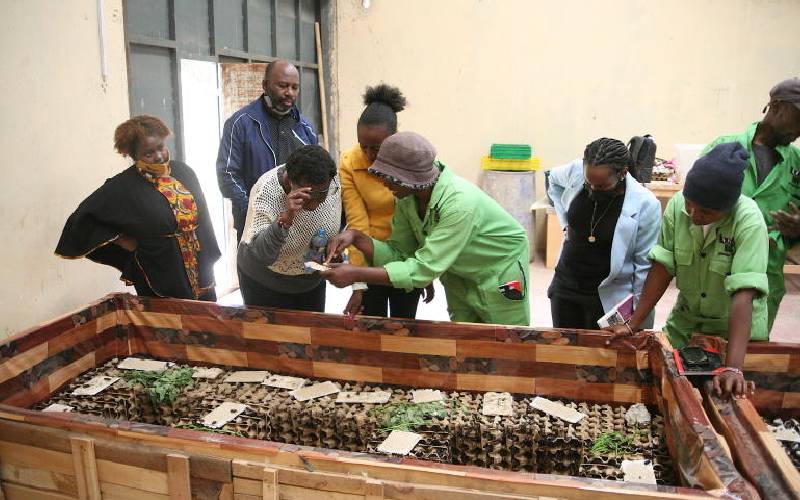×
The Standard e-Paper
Smart Minds Choose Us

Lincy Osore farm manager at Bugslife demonstrates how to collect Grillus bimaculatus crickets eggs to agro - tourist at Bugslife farm in Machakos County.[Wilberforce Okwiri,Standard]
When Eric Shem Ariwi visited Kenya from his Hong Kong-based business in 2019, he never imagined that his visit would turn into a relocation to Kenya. Then Covid-19 set in and with it the travel restrictions that led to the global shutdown.